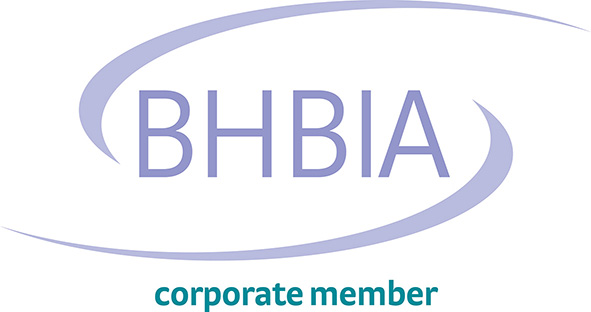Market Research Glossary
Market Research Glossary
There are currently 83 names in this directory beginning with the letter R.
Random
is a part of the sampling technique in which each sample has an equal probability of being chosen.
Random Digit Dialing (RDD)
is a method of reducing sampling frame error and involves the use of randomly generated numbers for a telephone survey, instead of relying on telephone directories or other lists of numbers that may exclude certain types of consumers.
Random Error
is an error that affects measurements in an unpredictable way due to random chance changes or differences.
Random Sample
A sample chosen randomly is meant to be an unbiased representation of the total population.
Random Sampling
is a part of the sampling technique in which each sample has an equal probability of being chosen.
Random Sampling Error
is the error caused by a particular sample not being representative of the population of interest due to random variation.
Random Variable
A random variable is a variable whose value is unknown or a function that assigns values to each of an experiment's outcomes.
Randomisation
involves the use of random chance to assign experimental units to different treatments.
Randomised Block Design
is a type of statistical experimental design where units are blocked (or grouped) on the basis of one external variable to ensure that the experimental and control group are matched on that variable.
Randomization
randomization is the process of choosing subjects at random to be part of all groups to include all characteristics in each group.
Range
is a measure of variability that is the difference between the largest and the smallest value in a set of values.
Rank Order Scaling
is a type of comparative scale where respondents are presented with a set of objects and they are asked to rank them first, second, third etc according to a criterion. Each rank is only used once.
Rank-Order Scales
is defined as a survey question type, that allows respondents to rearrange and rank multiple-choice options in a specific order.
Ranked Scale
A ranking scale is a close-ended scale that allows respondents to evaluate multiple row items in relation to one column item or a question in a ranking survey and then rank the row items. It is the scale used by market researchers to ask ranking questions.
Ranking
Ranking is a question response format used when a researcher is interested in establishing some type of priority among a set of objects, whether they be policies, attributes, organizations, individuals, or some other topic or property of interest.
Rapport
Rapport refers to the degree of comfort in the interactions between the researcher and research participants. For participant observation, rapport refers to the quality of the relationships that the researcher makes at the field-site.
Rating
is a procedure used to evaluate a concept, product, advertisement etc where respondents are asked to select one response from a scale to indicate the degree of their opinion.
Rating Scales
Rating scale is defined as a closed-ended survey question used to represent respondent feedback in a comparative form for specific particular features/products/services.
Ratio
Ratio Data is defined as quantitative data, having the same properties as interval data, with an equal and definitive ratio between each data and absolute “zero” being treated as a point of origin. In other words, there can be no negative numerical value in ratio data.
Ratio Scale
is a type of interval scale with a zero point, which represents an absence of the characteristic being measured. The data from ratio scales can be analysed statistically (which is not possible with data from nominal or ordinal scales).
Re-Screening
A brief interview conducted with potential participants when they arrive at a focus group facility to ensure that they really qualify for the session.
Reach
is the proportion of a specified television audience or universe who have been contacted by an advert at least once.
Reactive Bias
is a type of experimental error where participants in an experiment change their normal behaviour as a direct result of the experimental conditions.
Readership
is the number of people who read a particular publication and it is not necessarily related to its circulation.
Real-Time Tracking
which seeks to capture how people respond to experiences and interactions with a given brand, all in real-time.
Recall Interview
A repeat telephone call to a potential respondent to see if they can participate in a survey.
Recall Measurement
is a type of post-test that investigates respondents’ ability to recall something they may have read, heard or seen. Recall measurements can be taken without or with the benefit of some form of stimulus material - see spontaneous and prompted awareness.
Recall Test
Recall test is testing the reach and effectiveness of the advertisement where a person is asked to recall advertising messages the person remembers.
Recommendations
are suggested courses of action or an assessment of the relative strengths and weaknesses of particular courses of action
Recontact
It is used to refer to the multiple attempts that often must be made to make contact with a sampled element, such as a household or person, in order to gain cooperation and gather data and achieve good response rates.
Reconvened Group Discussion
refers to two group discussions with the same participants that are separated by a period of time.
Recruiter
The person responsible for recruiting participants for a focus group or the person administering a questionnaire.
Recruiting
is the inviting of selected participants (who meet specific eligibility criteria) to take part in a research project. The work is undertaken by a field recruiter (often just referred to as a recruiter).
Recruitment
The process by which respondents or participants are screened and selected against certain criteria, then persuaded to take part in qualitative market research.
Referral
is a word-of-mouth initiative designed by a company to incentivize existing customers to introduce their family, friends and contacts to become new customers.
Referral Sample
is a nonprobability sampling technique where existing study subjects recruit future subjects from among their acquaintances.
Refusals (Ref)
refers to respondents who will not participate in a research project. Refusals are tracked at various stages within a research project - see initial refusals and qualified refusals.
Regression Analysis
is the analysis of the relationship between a dependent variable and one or more independent variables. Its purpose is to determine whether a relationship exists and the strength of the relationship. It is also used to determine the mathematical relationship between the variables, predict the values of the dependent variable and control other independent variables when evaluating the effect of one or more independent variables.
Regression Coefficients
The regression coefficient expresses the functional relationship among the response (explained, dependent) variable and one or more explanatory (predictor, independent) variables.
Regression to the Mean
is a statistical phenomenon that occurs whenever you have a nonrandom sample from a population and two measures that are imperfectly correlated. The figure shows the regression to the mean phenomenon.
Rejection Region
which will lead you to reject the null hypothesis, or the acceptance region, where you provisionally accept the null hypothesis.
Related Recall
is a copy testing measure that is intended to quantify a commercial's attention-getting ability. Respondents are interviewed (usually by phone) within a specific period after exposure to the advertising medium and they are asked questions to determine the proportion of people who watched a programme and remembered seeing the particular commercial.
Related Samples
Multiple samples taken from the same sample group where each sample from a particular participant influences later samples taken from that same participant.
Relationship Marketing
Relationship marketing is a form of marketing developed from direct response marketing campaigns that emphasizes customer retention and satisfaction rather than sales transactions.
Relevance
is a term used to describe whether or not some advertising or a brand proposition shares some fundamental values with a particular group of consumers.
Reliability
is the extent to which a research process can be repeated and produce consistent results (ie it is free from random error).
Repeat Rate
the percentage of your current customer base that has come back to to shop again: a metric which is influenced by your efforts at customer retention and is a pretty good measure of loyalty, often taken into account by marketers to evaluate performance.
Repeat-Pairs Technique
A product-testing procedure in which respondents are asked to choose between two products, and then repeat the task with an identical pair of products.
Representative Sample
is a sample that contains units in the same proportion as the population of interest.
Request for Proposal (RFP)
A request for proposal (RFP) is a business document that announces and provides details about a project, as well as solicits bids from contractors who will help complete the project.
Research Brief
A research brief is a statement from the sponsor setting out the objectives and background to the case in sufficient detail to enable the researcher to plan an appropriate study.
Research Design
is the framework for conducting a market research project that specifies how information will be collected and analysed to answer the questions at hand.
Research Effect
is a general term that suggests the research itself may be contributing to a change in the data.
Research Methods
a company to discover the target market and get opinions and other feedback from consumers about their interest in the product or service.
Research Proposal
Research proposals are vital for outlining both. They also explain the potential returns or results a study can yield. Ideally, the proposal should convince outside readers while informing research and development teams.
Researcher
Any individual or organisation carrying out, or acting as a consultant on, a market research project, including those working in client organisations.
Residual Error
is the difference between the observed value and the estimated value of the quantity of interest.
Respondent Error
is a type of non-sampling error caused by respondents intentionally or unintentionally providing incorrect answers to research questions. Possible sources of respondent error can be: inability error, best light phenomenon, social group norms or selection bias.
Respondent Fatigue
is when respondents’ are disinclined to continue participating in a research project and it can lead to invalid responses (usually towards the end of the research project).
Respondent Fee
A reward given to participants or businesses for taking the time and trouble to cooperate in a marketing research study.
Response Bias
Response bias is a general term for a wide range of cognitive biases that influence the responses of participants away from an accurate or truthful response.
Response Style
is a systematic tendency of respondents to select particular categories of responses regardless of the content of the questions.
Resulting Sample
is the sample that has been achieved in a particular research project (which may be different to the intended sample).
Rewards
These are also known as incentives. Respondents are provided with an incentive to participate in the research study. Managing the research survey incentives is essential for survey research.
Role Playing
is a projective technique where participants are asked to play the role or assume the behaviour of someone else.
Rotation Procedure
is the process of asking questions or showing material to respondents in a different order for every interview according to a set of instructions. This process minimises the risk of order bias (ie respondents favouring objects because of their position in a list).



